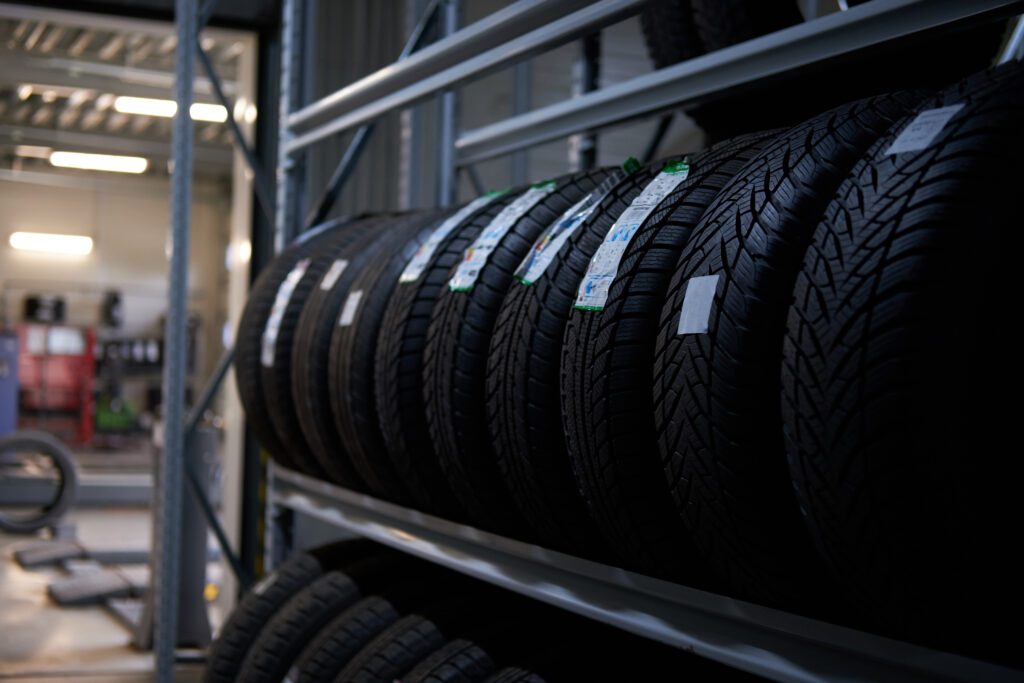We are gonna talk about Winter Tires vs All Season Tires which One Is Right for You? When the temperature drops and snow starts to fall, the question of winter tires versus all-season tires becomes essential for many drivers. Picking the right type of tire can impact your safety, driving experience, and even your wallet. In this article, we’ll dive deep into the comparison between winter tires and all-season tires, so by the end, you’ll know exactly which tire is right for you!
Winter Tires vs All Season Tires – Introduction
In this topic Winter Tires vs All Season tires may seem like an afterthought, but they’re one of the most important parts of your vehicle. Choosing between winter tires and all-season tires is not just a matter of preference; it can greatly affect your safety and driving experience. In regions where winter brings freezing temperatures, ice, and snow, this choice becomes even more crucial. Find best winter tires guide for your car by clicking here.
Understanding the Basics of Tires
Before we compare winter tires vs all season tires, it’s important to understand what tires actually do. Tires are the only support for your car from the road. They provide traction, absorb shock, and help with stability, all while supporting the vehicle’s weight. The material and design of a tire significantly affect how it performs in different weather conditions.
What Are All-Season Tires?
Definition of All-Season Tires
All-season tires are designed to provide a good balance of performance in various weather conditions. They can handle dry roads, rain, and even light snow, making them a versatile option for drivers who live in regions with mild weather throughout the year.

Benefits of All-Season Tires
All-season tires are convenient because they eliminate the need for seasonal tire changes. They also tend to last longer because they are made from harder rubber compounds, and their moderate tread patterns allow for even wear over time. But can they really handle tough winter conditions?
What Are Winter Tires? – Winter Tires vs All Season
Definition of Winter Tires
Winter tires, sometimes called snow tires, are specifically designed for cold weather. They are made of a softer rubber that stays flexible in freezing temperatures. They also have deep tread patterns and small grooves called sipes that enhance grip on ice, snow, and slush.

Advantages of Winter Tires
Winter tires offers excellent grip on snow and ice. They’re built to cut through snow and maintain grip even when the roads are slick. If you live in a region where winter temperatures frequently drop below freezing, winter tires are an excellent investment for your safety.
Key Differences Between Winter and All-Season Tires
Tread Design – Winter Tires vs All Season
Winter tires have a more aggressive tread pattern compared to all-season tires. The deep grooves help move snow and ice away from the tire’s surface, while the sipes increase the tire’s grip on slippery roads. All-season tires have a more moderate tread design that’s better suited for dry and rainy conditions.
Rubber Composition – Winter Tires vs All Season
The rubber used in winter tires is softer, which keeps it flexible in cold temperatures. This flexibility improves traction when driving on ice or snow. On the other hand, all-season tires are made of a harder compound, which gives them better durability in warmer conditions but less grip in freezing weather.
Performance in Different Weather Conditions -Winter Tires vs All Season
All-season tires can handle a variety of conditions but may struggle in deep snow or on icy roads. Winter tires excel in these conditions but may wear out faster if used in warmer temperatures.
How Temperature Affects Tire Performance
Cold Weather and Tire Grip
When we talk about winter tires vs all season tires so when temperatures drop below 45°F (7°C), the rubber in all-season tires begins to harden, reducing their ability to grip the road. Winter tires, however, remain soft and pliable, allowing them to maintain traction.
Warm Weather and Tire Durability
Winter tires aren’t designed for warm weather. Their softer rubber can wear down quickly in temperatures above freezing, reducing their lifespan. All-season tires are more durable in warmer climates.
Read more about the affect of temperature on tire by clicking here
Performance of All-Season Tires in Winter
Can All-Season Tires Handle Snow?
All-season tires can handle light snow, but they are not optimized for icy or heavy snow conditions. While they can provide some traction, they may not offer the safety or performance needed in severe winter weather.

The Limitations of All-Season Tires in Cold Weather
In very cold conditions, all-season tires may not offer the same level of control and stopping power as winter tires. This can lead to longer stopping distances on icy roads.
Winter Tires in Mild Conditions
Are Winter Tires Necessary If You Don’t Get Much Snow?
If you live in a region with mild winters and little snow, winter tires may not be necessary. All-season tires should be sufficient for handling light snow and rain.
Effects of Using Winter Tires in Warmer Weather
Using winter tires in warm weather can lead to faster wear, as the softer rubber is not designed for high temperatures. It can also negatively affect your vehicle’s handling on dry or wet roads.
Cost Comparison: Winter Tires vs. All-Season Tires
Which Tire Type is More Expensive?
Winter tires tend to be more expensive than all-season tires, not just in terms of the initial purchase but also because of the need for a second set of tires.
Long-Term Cost Considerations
Although winter tires may cost more upfront, they can save you money in the long run by preventing accidents and reducing wear on your all-season tires when used seasonally.
Do You Need Both? When to Consider Switching Tires
Seasonal Tire Changes: Is It Worth It?
For those living in areas with harsh winters, it’s worth switching to winter tires for the season. While it may be an extra hassle, the improved safety and performance are worth the effort.
Convenience of All-Season Tires
If you live in an area with mild winters or prefer a “set it and forget it” approach, all-season tires offer a convenient option.
Safety Considerations
Which Tire is Safer in Snow, Ice, and Rain?
Winter tires are safer in snow and ice due to their superior grip. All-season tires perform better in rain and on dry roads.
The Role of Traction and Stopping Distance
Winter tires have shorter stopping distances on snow and ice, which can be critical in avoiding accidents. All-season tires have better traction on dry and wet roads.
Fuel Efficiency: Which Tire Saves You More at the Pump?
Tire Type Impact on Fuel Economy
All-season tires generally offer better fuel efficiency because of their harder rubber and less aggressive tread pattern. Winter tires may increase fuel consumption slightly due to their softer rubber and deeper treads.
Longevity and Wear: Which Tires Last Longer?
Durability of Winter Tires vs. All-Season Tires
All-season tires last longer, especially if used year-round in moderate climates. Winter tires tend to wear out more quickly if used in warm conditions or on dry roads.
How to Decide: Key Factors to Consider
Climate and Geography
If you live in an area with harsh winters, winter tires are likely your best bet. However, if you experience mild weather year-round, all-season tires should suffice.
Driving Habits and Mileage
If you drive frequently or for long distances, investing in winter tires for the cold season can improve your safety and comfort on the road.
Budget and Convenience
While winter tires may be an additional expense, the peace of mind they offer in icy or snowy conditions may be worth the cost.
Conclusion
When it comes to choosing between winter tires and all-season tires, the right choice depends largely on where you live and how you drive. Winter tires provide superior performance in cold, snowy conditions, while all-season tires offer more convenience and durability for milder climates. Consider your local weather, budget, and driving habits to make the best decision.
FAQs
How Can I Tell If I Need Winter Tires?
If you live in a region where temperatures consistently fall below 45°F (7°C) during the winter, winter tires are recommended for better traction and safety.
Are All-Season Tires Truly Year-Round?
All-season tires are designed for a variety of conditions, but they don’t perform as well in extreme cold or heavy snow.
How Do Winter Tires Perform on Ice?
Winter tires excel on ice due to their specialized rubber compounds and tread designs that improve grip and reduce slipping.
Can I Use Winter Tires All Year?
While you can use winter tires all year, it’s not recommended as they wear out quickly in warm weather and can affect fuel efficiency.
When Should I Switch Back to All-Season Tires?
Switch back to all-season tires when temperatures are consistently above 45°F (7°C) to preserve your winter tires and maintain optimal performance.
